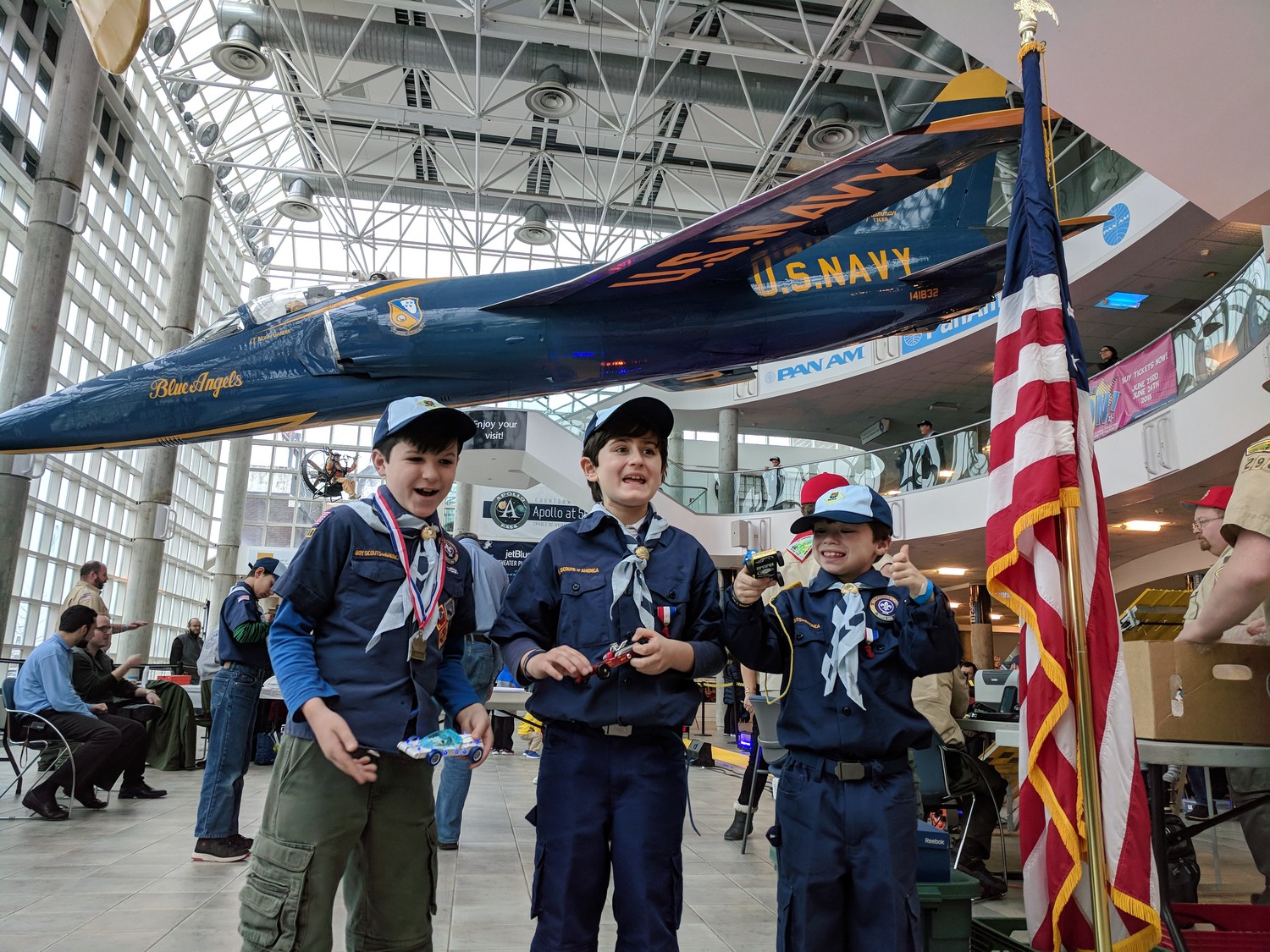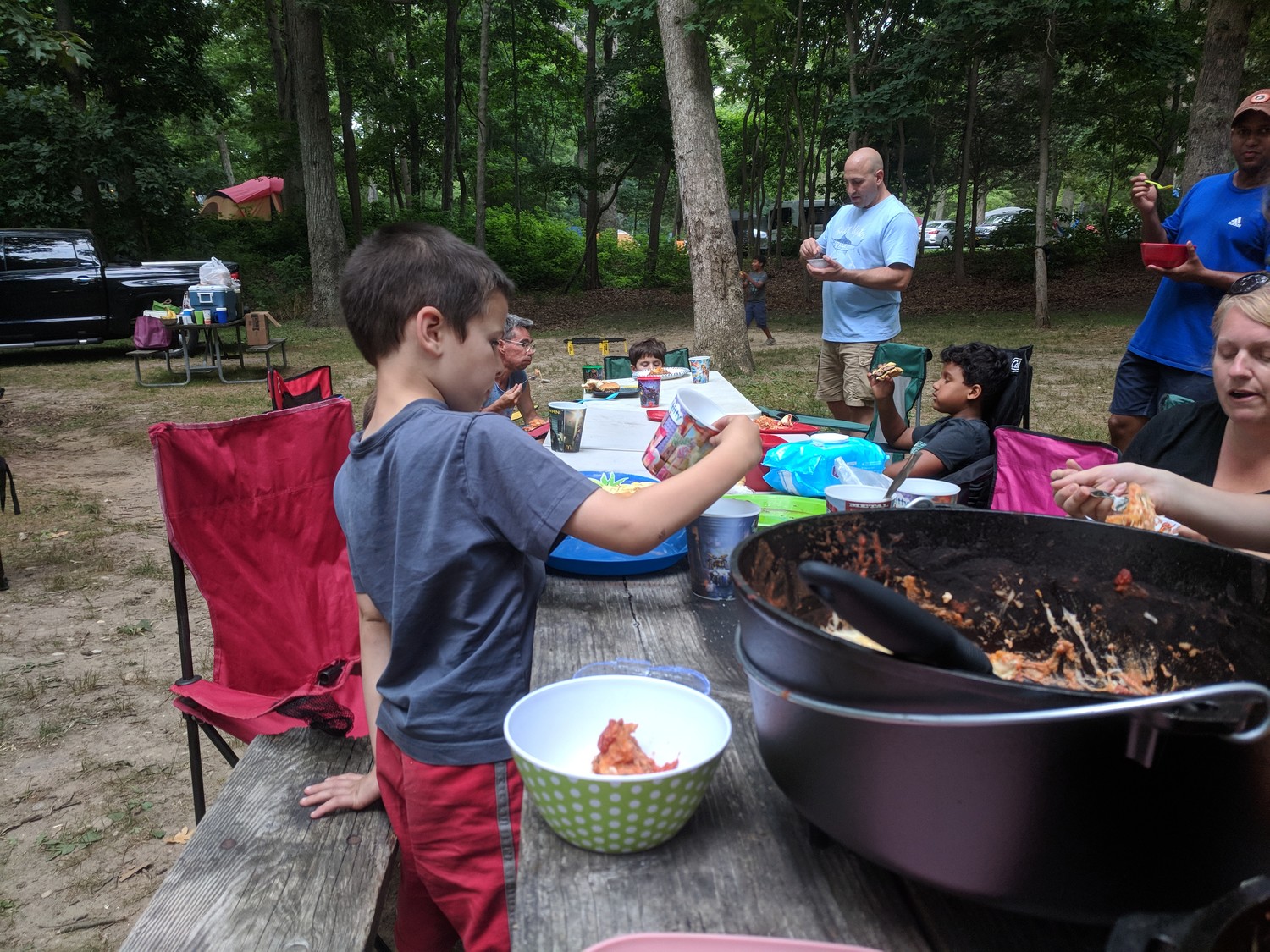For Glen Cove Cubs, a ‘duty to community’
Pack 6 open house welcomes boys — and girls
Learning a variety of skills requires a variety of classrooms, according to John Sullivan, who leads Cub Scout Pack 6 in Glen Cove. School is a fine place to learn English, math and history. For everything else, from public speaking to leadership skills to archery and wilderness survival, there’s scouting.
Pack 6 — which meets in the Church of St. Rocco — will host an open house there on Oct. 4, to let cub-aged kids, ages 7 to 10, try out a meeting before signing up. “Basically, open houses are an opportunity for us to invite potential Cub Scouts and their families to see what goes on at a regular meeting night,” Sullivan said.
In late 2017, the Boy Scouts of America announced that it would allow girls to join, a move Pack 6 embraced. “We’re a family pack,” Sullivan said. “We’re ready to have girls’ dens” if there is an interest.
Sapna Medrano, Pack 6’s committee chair and the mother of two Cub Scouts, said that so far, only one girl has expressed interest. “We could probably start [a girls’ den] with two or three, with the hope that it grows” once area families hear about it, she added.
The pack — comprising almost 25 boys — meets every Thursday, but Sullivan stressed that it is more low-key than other packs. “I’d rather say that this is something you can supplement your other interests with,” he said, as opposed to a high-stakes pipeline to the prestigious Eagle Scout award.
Medrano got involved in the organization after attending a similar open house a few years ago. “My kids are not athletically inclined,” she said, and scouting gives them the experience of teamwork and camaraderie that others have as members of sports teams. She said she hopes her 1-year-old daughter will join a girls’ den when she’s old enough.
Sullivan said that one major role the pack plays in its members’ lives is instilling a sense of duty — specifically, duty to community. For his Cub Scouts, he said, that duty takes the form of community service, especially in food drives for the Church of St. Rocco.
“What we’re trying to build is a good citizen,” said Phil McCabe, assistant scoutmaster of Boy Scout Troop 6, for older boys — ages 11 through 17 — which Sullivan’s pack feeds.
The ingredients of a good citizen, McCabe said, can be found in the Scout Law, a list of values that make up a good scout’s character. “Hopefully, it’s something they follow for the rest of their lives,” he said.
While much of the Boy Scout program remains what McCabe described as “back-to-basics” skills, like cooking, camping and other outdoor skills, which he said draw scouts away from “the phones that they’re sort of glued to,” a number of recently created merit badges — game design, digital technology, programming and robotics — have integrated modern interests into the 108-year-old organization.
If the values in the Scout Law define what makes an individual a scout, a scout’s choice of merit badges is what makes him an individual. Some badges focus on a skill, like engineering or first aid, while others require understanding of a topic, like citizenship or space exploration. “You may never use [those skills] again, McCabe said, “but then again, it might pop up. At least you’re trying something.”
Even though there isn’t a merit badge for it, scouting teaches leadership. “Everything is boy-led,” McCabe said. “As a joke, I tell them, ‘If you want to go to the moon, that’s fine, but you gotta sell a lot of popcorn to get there.’”
The scouts need guidance, of course, but adult leaders try to keep it to a minimum. “We just do the driving and make sure they don’t hurt themselves,” McCabe added.
The trips, Sullivan said, are another good reason to join. Plenty of parents want their children to experience the national parks, museums and historical sites that are frequented by scouts, but have trouble finding the time. “When you have a bunch of families committing to something,” Sullivan said, “it’s easier to make it happen.”
That was true of Medrano’s family. “They’ve done things that we would have never done, especially the camping,” she said. “Now we probably go three or four times a year.”









